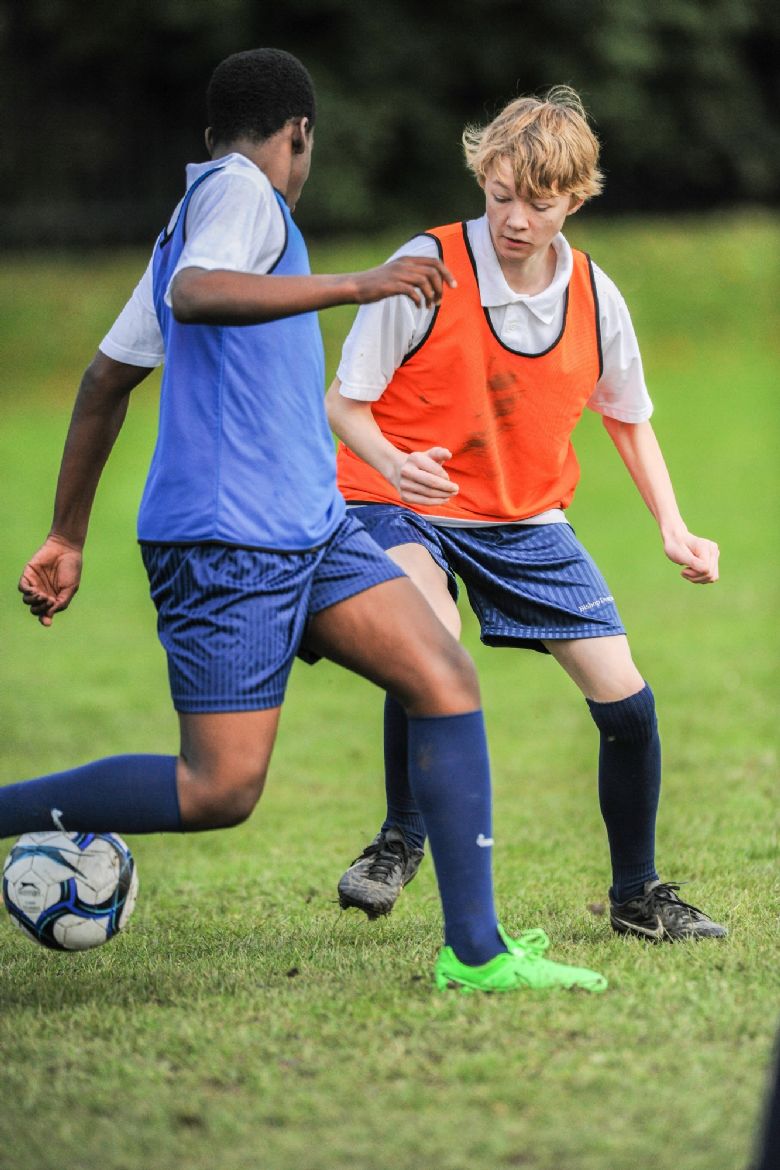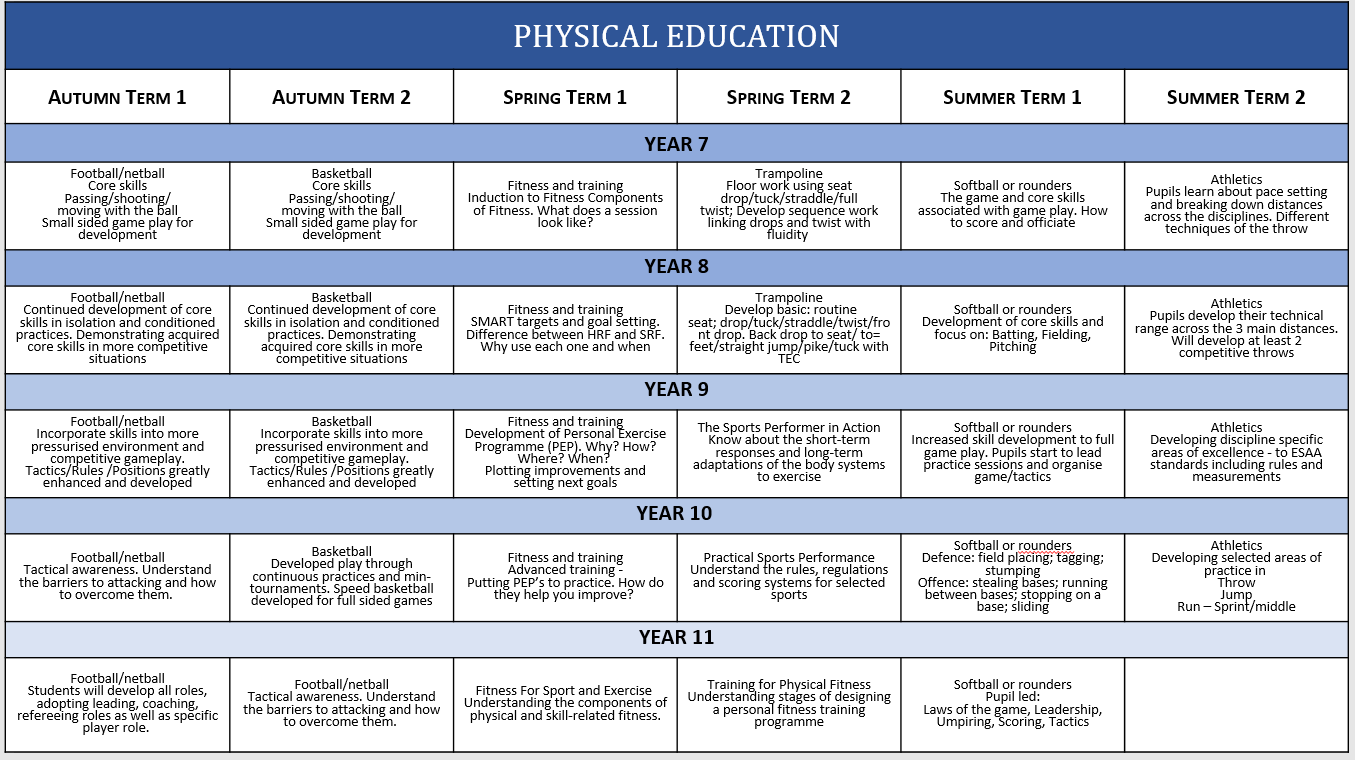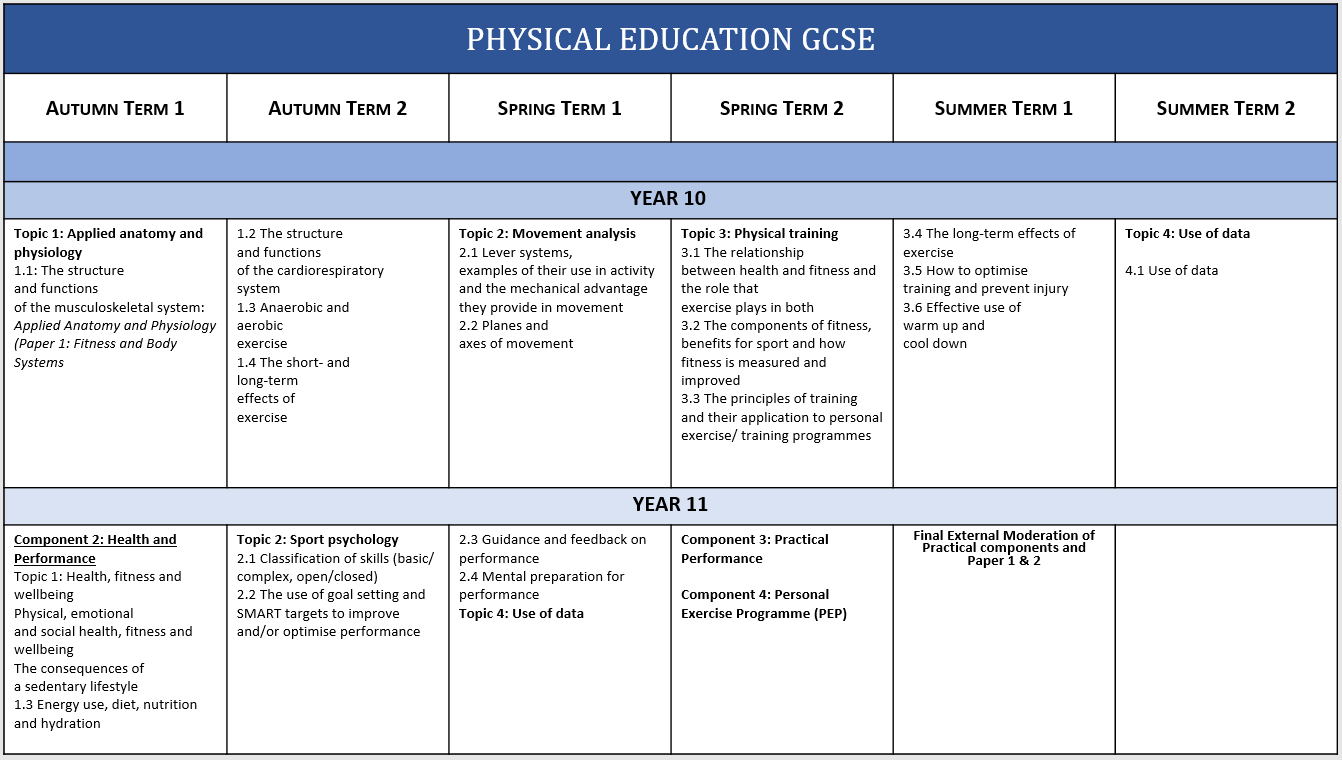Physical Education
The Physical Education Department aims to provide a curriculum that develops pupils' competence and confidence to take part in a range of physical activities that embeds the value of leading healthy, active lifestyles that become a central part of their lives both in and out of school.
The Physical Education Department aims to provide a curriculum that develops pupils' competence and confidence to take part in a range of physical activities that embeds the value of leading healthy, active lifestyles that become a central part of their lives both in and out of school.
Underpinning all PE lessons at Bishop Douglass is a focus on enjoyable, demanding and rewarding challenges through which physical skills, knowledge and understanding can be developed. Our continued vision is to offer a high-quality physical education curriculum, which inspires all pupils to succeed and excel in competitive sport and other physically demanding activities. We strive to develop positive attitudes to physical activity, sport and healthy lifestyles, which are then taken into adulthood.
PE through the Key Stages
Pupils build on and embed the physical development and skills learned in key stages 1 and 2, to become more competent, confident and expert in their techniques, and apply them across different sports and physical activities. This includes an understanding of what makes a performance effective and how to apply these principles to their own and others’ work. Pupils are taught to use a range of tactics and strategies to overcome opponents in direct competition through team and individual games (for example, badminton, basketball, cricket, football, hockey, netball, rounders, rugby and tennis); develop their technique and improve their performance in other competitive sports (for example, athletics and gymnastics/trampoline); perform dances using advanced dance techniques within a range of dance styles and forms; take part in outdoor and adventurous activities which present intellectual and physical challenges and be encouraged to work in a team, building on trust and developing skills to solve problems, either individually or as a group (for example OAA and Duke of Edinburgh Award scheme.
Key Stage 3
Pupils will be taught to:
- use a range of tactics and strategies to overcome opponents in direct competition through team and individual games [for example, badminton, basketball, cricket, football, hockey, netball, rounders, rugby and tennis].
- develop their technique and improve their performance in other competitive sports [for example, athletics and gymnastics].
- perform dances using advanced dance techniques within a range of dance styles and forms.
- take part in outdoor and adventurous activities which present intellectual and physical challenges and be encouraged to work in a team, building on trust and developing skills to solve problems, either individually or as a group.
- analyse their performances compared to previous ones and demonstrate improvement to achieve their personal best.
- take part in competitive sports and activities outside school through community links or sports clubs.

Key Stage 4
At Key Stage 4, our PE programme is all about inspiring enthusiasm for physical activity and helping every student adopt a healthy, active lifestyle for life. We’ve created a dynamic curriculum that blends enjoyment, personal challenge and real-world application by:
- Building on KS3 Foundations – Students will transfer and refine knowledge and understanding developed at KS3, putting it into practice across a range of sports, including but not limited to badminton, basketball, cricket, football, netball, rounders, rugby and table tennis.
- Competitive Opportunities & Skill Showcase - At KS4, students will bring their KS3-honed skills to life in match situations, sharpening tactical awareness, building confidence and demonstrating true sportsmanship. Inter-house and inter-school opportunities provides the perfect opportunity for students to track their progress, celebrate personal bests and thrive under pressure, where learners can demonstrate their growth.
- Personal Fitness & Wellbeing- Students are given the opportunity to develop strength, flexibility and cardiovascular health in sessions designed for all abilities. We emphasise goal-setting, self-evaluation and positive feedback so that every student can see, and enjoy, their own progress. Our aim is for every pupil to leave Year 11 with the confidence and passion to stay active for years to come.
GCSE & BTEC Pathways
All students continue with core PE lessons weekly. In addition, they can choose to deepen their understanding by studying either the GCSE PE course or the BTEC Level 2 in Sport. Both options explore the theory behind physical education, covering anatomy, physiology, psychology and coaching principles, alongside practical units. The BTEC route includes one assessed unit per year, culminating in an exam in Year 11, while GCSE PE combines coursework and examinations in addition to practical to ensure a balanced mix of theory and practice.
Key Stage 5
The study pathway for year 12 and 13 includes the Level 3 National Diploma in Sport. This is a 2 year course and is worth 1 A level. Pupils study a total of 4 units across the 2 years which involve a portfolio/coursework unit and an examination unit for each year.
Curriculum Map


Enrichment Opportunities
Bishop Douglass is committed to an extensive extra-curricular programme. All students have an opportunity to engage in outside of curriculum time sports and activities which include many practice sessions as well as the opportunity to join one of our many sports teams. Students may also hone skills and develop fitness levels in any of the extensive curriculum clubs.
Updates to our extra-curricular programme can be found in the school newsletter
Throughout the year students from different House groups also compete against each other in competitive tournaments across a range of different activities that include basketball, table-tennis, rounders, softball and football.
For further information please contact us via email - schooladmin@bishopdouglass.barnet.sch.uk





